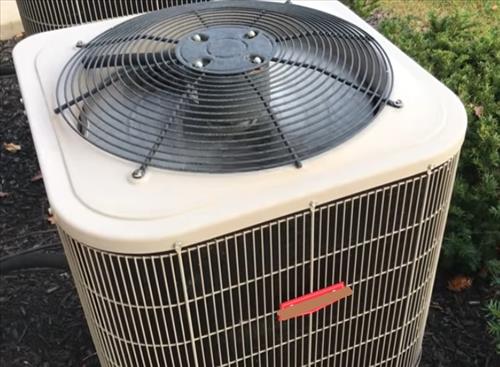
If you have an air conditioner that is buzzing every few minutes, there are several common causes and fixes.
Often it is simply a bad part that needs to be replaced, and the buzzing goes away.
The first step is to narrow down which component is making the noise and then, if necessary replace it.
Below are the most common causes of an air conditioner that is buzzing or humming.
Causes and Fixes for AC Unit Buzzing Every Few Minutes
- Fix any Loose Bolts or Panels
- Check for Bad or Failing Contactor
- Check for Bad or Failing Capacitor
- Add Compressor Sound Wrap Blanket
- Check for Bad Condensing Fan Motor
- Failing Reversing Valve
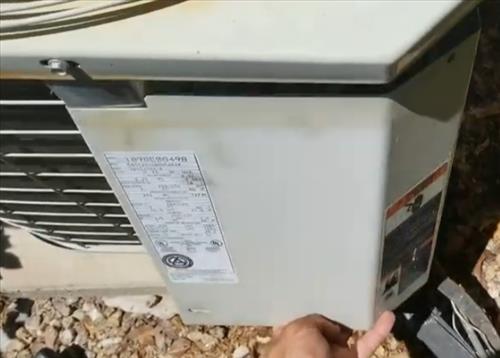
A loose bolt holding on a panel or door may cause a buzzing noise.
This can often be checked by pressing on the panels and seeing if the noise goes away.
If the noise stops, the panel can be better bolted into place to stop making the sound.
If there is a loose panel and a screw is gone or missing, new screws can be bought at a hardware store that can be used to hold the panel.
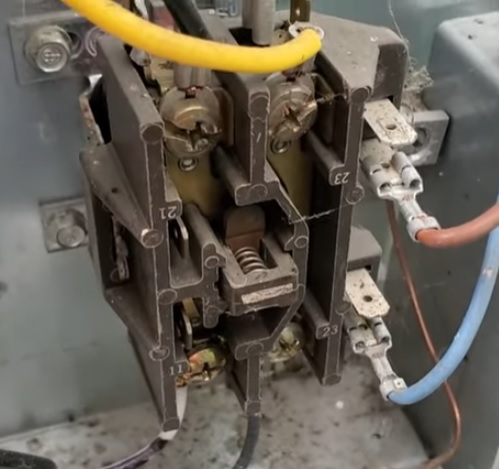
Air conditioner units use a contactor to control high voltage with low voltage.
A contactor has a coil that, when energized, closes allowing electricity to power the unit.
The coil uses low voltage from the thermostat to engage and disengage the system.
When tips of a contactor that engage become worn, they can start to stick and cause a buzzing noise.
The compressor can also fail to start and may cause noise.
When this happens, it will need to be replaced with a new contactor.
Replacing a contactor is straightforward but does have high voltage, so care has to be taken when replacing the component.
Read here for more on how to replace an HVAC contactor.
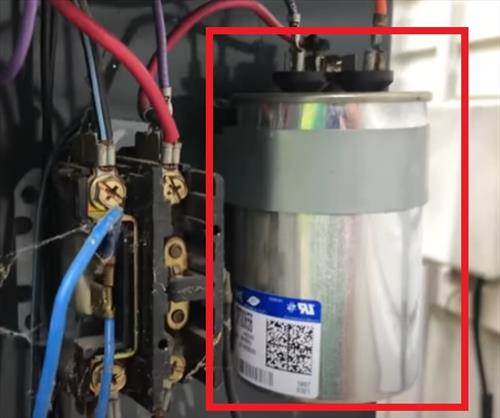
A bad or failing capacitor can cause an air conditioner unit to buzz.
There are usually two main capacitors in an HVAC system called the Start and Run capacitor.
The Start and Run capacitor can be separate or built into the same package.
Usually, they are built into a single package and are called dual-round capacitors.
There will be three connections, one for the condensing fan (FAN), one for the compressor (Herm), and one shared common lead.
If the compressor (Herm) side on the capacitor fails, the compressor may try to start and fail, causing a buzzing sound.
Swapping in a new capacitor is a straightforward task as long as care is taken since it has high voltage.
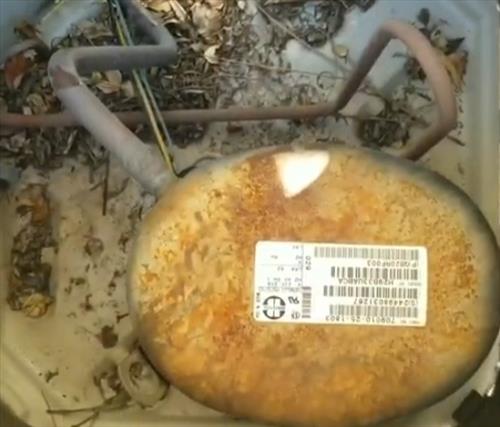
If the compressor has gone bad or is failing, it can also cause a buzzing sound.
Usually, other components such as the capacitor or contactor cause the compressor not to work, but it can also fail or become noisy.
Often a Compressor Sound Wrap Blanket is often used to quiet down a noisy compressor.
A Compressor Sound Wrap Blanket is simple to install and goes and the compressor helping to stop it from being noisy.
Example Compressor Sound Wrap Blanket on Amazon
Supplying Demand SBLHD Air Conditioner Compressor Sound Blanket for Large Tall Residential Compressors
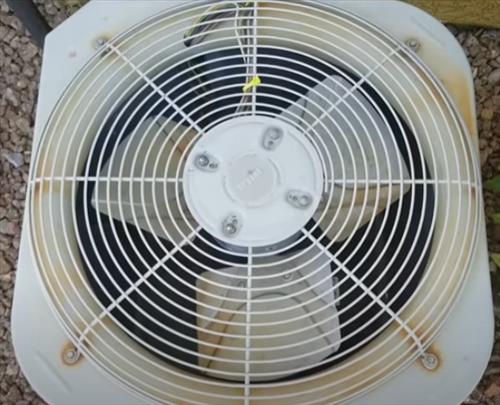
When a condensing fan motor has gone bad or is failing, it also can be noisy.
The fan is located at the top of the outside unit and can be seen visibly spinning.
The start run capacitor can cause the fan not to work correctly, so it should be tested first.
Replacing the condensing fan motor is a straightforward task done by many DIY persons with many online tutorials and YouTube videos showing the steps.
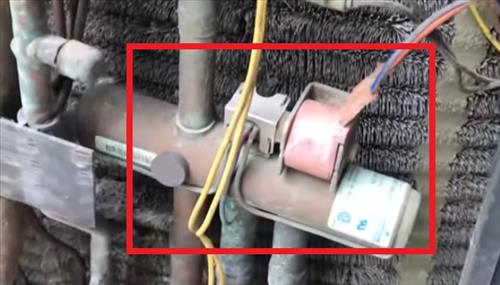
A reversing valve is built into heat pump units that both cool and heat.
The solenoid can sometimes start buzzing, causing the issue.
Replacing the reversing valve is not an easy task and requires removing the refrigerant and soldering a new valve in place.
If the reversing valve is the cause of the problem, an HVAC tech will be needed to replace it.
Summary
A buzzing air conditioner unit can be annoying and is a common complaint from many homeowners.
When a unit is making a loud noise, the first step is to narrow down where the sound is coming from.
Once the source of the noise is found, the component can be checked and replaced if necessary.
Common causes are loose bolts, failing or bad relay/contactor, or capacitors.
Replacing a contactor or capacitor is often done by DIY people but if in doubt, be sure to call a professional.
Have you had an issue with an AC Unit buzzing every few minutes? Let us know your thoughts below.